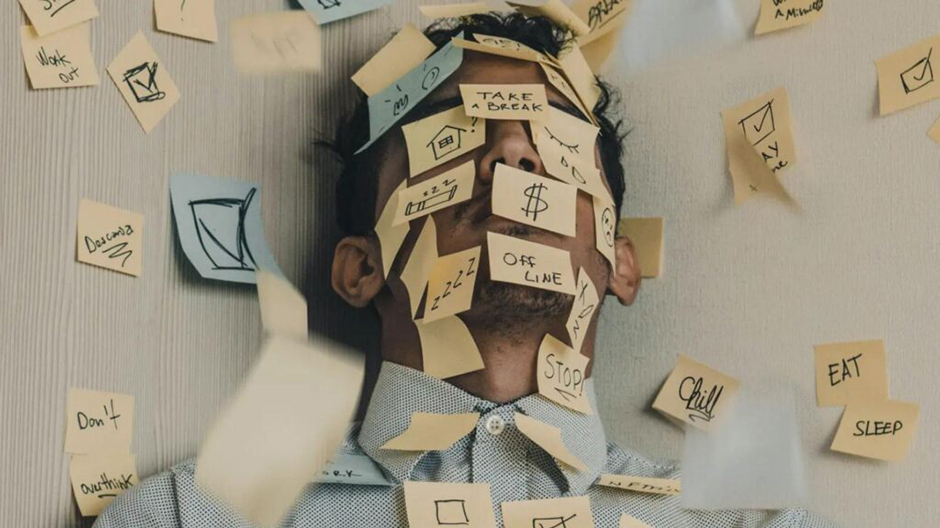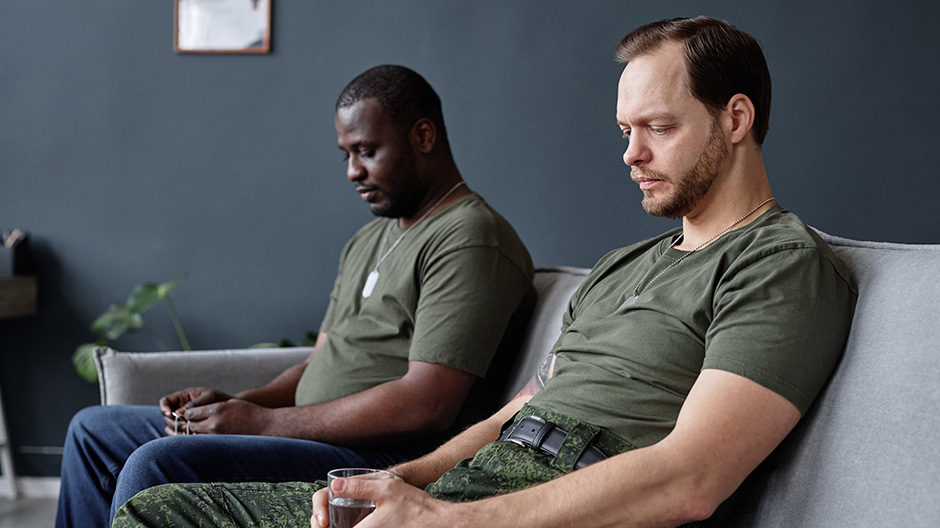It’s time to stop blending your availability with your free time.
By Olivia Verhulst, LMHC at Let’s Talk Psychological Wellness, P.C.
Many things have felt blurred during this pandemic as we work from home, play from home, educate our kids from home, and so on and so forth. The blurriness continues to manifest (at least for me) as… What day is it? What time is it? What YEAR is it?
Something that may have already been blurred for some of us pre-covid is our free time and availability.
Do you constantly pick up that call from your boss in the evening hours, long after you’ve closed the laptop for the day?
Is it implied within your work setting that if you aren’t responsive outside of work hours, that you’re doing something wrong? Or falling short?
Do you block off time on your calendar for personal endeavors or time off, yet you’re frequently reached out to?
Are you regularly working extra uncompensated hours that weren’t in the job description?
Is it you (or your anxiety) that has created a narrative that to make yourself available at all hours of the evening and weekend for work is to be an all-star employee?
Have you come to the end of the year and realized that you never took your vacation days?
Are there often expectations being put on you (by you, your family, friends, group chats, work-life) that just because you may have physical access to your phone, you should be immediately responsive?
Do you feel the need to be perpetually productive and ‘there for others’ to be “good”?
If you are YES-ing the crap out of this and nodding your head, it’s possible that a boundary-less relationship has been developing between your free time and availability- or it may be a relationship that lacks intention.
There’s several reasons your free time may often feel compromised or confused with your availability. To name a few:
- You may be in a work culture that perpetuates and normalizes burn-out.
- Your flexible and remote work-from-home hours lack structure.
- You’re acting on anxiety that manifests within a high-achiever, perfectionist or people pleasing mindset.
(Ex. If work is one of the few places you derive great significance in your life, it can feel complicated to put that down and be left with all the other parts of yourself that you may like to distract from) - You (or those around you) struggle with boundaries.
- You’re doing too much at once.
- You don’t feel deserving of the peace and self-prioritization that comes with balance.
(Dr. Ruifan Zeng, Ph.D shares one example, “I find that with many of my clients from immigrant backgrounds where they grew up in a culture of sacrifice, there’s a deeply ingrained sense that having free time means you are available for more work, more giving of yourself in some way, rather than simply being allowed to be ‘free’ for the sake of it.”)
The inability to prioritize the self-care that comes with free time can have devastating impacts on mental health in the long run. Often I see these consequences on people and patients in my life looking like burn-out, resentment, anxiety, depression, identity issues and more. And while “burn-out” may be an expression thrown around left and right these days, what’s behind the trendy term is a very real and dangerous phenomenon. Perhaps the most dangerous part being how embedded into our culture and routine burn-out may already be, disguised as normal, and oftentimes glorified. If you’re struggling with boundaries or making time for you, what is certain is that you’re not alone- and that it’s not easy. But practice makes good enough (HA! you thought I was going to say perfect. The goal is always good enough). Distinguishing the differences between your free time and availability can help foster self-preservation and other protections that prevent burn-out.
Below are five tips on how to implement boundaries between your free time and your availability:
1. Schedule your free time.
It’s common to spend so much time in life scheduling your professional goals and obligations, and letting life unfold around them. Sometimes we need to aim the same mindfulness toward our leisure time, to implement more meaning around that. During this time, you may want to set a boundary with yourself that you won’t be responding to or showing up for other people.
2. Set the tone.
Sometimes this looks like slipping into your robe or go-to PJ set after work. Other times it looks like a personal ‘no phone’ rule, lighting candles to set your space up, putting Slack on silent over the weekends, or simply leaving the room you just worked from all day. Taking a walk outside after work and before leisure time can help break-up the day too and allow you to shift from work mode to you-time.
3. Be aware.
Having self-awareness for how your routine is impacting you; what’s feeling right, what’s feeling uncomfortable, where you feel over-extended (and why) is key. This will help name what areas of your life you’re needing more balance in, as well as foster long term changes. It can also help grow clarity around the distinctions between your free time and availability.
Kelsey George, M.S. and CYT (certified yoga teacher) identifies her free time by when she’s feeling liberated with choices. “Free time comes with choices. Deciding how you want to spend your time, and deciding how and if you’d like to make yourself available to others.”
On the other end, David Coen, LMHC and mental health expert, gives an example of awareness around his availability during the work day. “If I don’t have any meetings from 12-2pm that time is available, but not free for me because I have that time dedicated to work. I will spend it doing notes or admin, but have not necessarily decided the specific use of the time.”
4. Set the standard up front.
When you’re entering into a new friendship, job or community is a great time to shed light on your boundaries with others. This doesn’t need to always look explicit. Sometimes it can look like setting a tone of not being overly available or responsive at all hours of the night. Expectation management is also an important part of initial relationship building, and asking questions around what balance looks like in a new setting can help set you up for success.
5. Don’t be afraid to change the standard- or to start having the uncomfortable conversations.
So often I speak with people who are navigating deep discomfort by avoiding the tough conversation about boundaries with their boss, parent or friends, because it feels too late to change a dynamic, and as if they’re going against the grain. A reminder that it’s never too late to reclaim your you-time, and that just because others may disagree with your boundary doesn’t mean it’s wrong.
I asked some mental health experts in my network how they distinguish between free time and availability to deepen the distinction here between the two.
“Free time is for you. Availability is time we create in our schedules that can be dedicated to someone else.” – Ali Morea, LMHC
“Just because we have free time does not mean that it has to be allocated to something. Often, we get into cycles where we believe that we have to constantly be productive, but the reality is that we still have ownership over how we use our time. There’s a difference between capacity and capability. We might be capable of accomplishing a task, but that does not necessarily mean that we have the cognitive, emotional, or physical capacity to embrace the task and then still have energy reserves for ourselves.” – Dr. Erica T. Harris, Ph.D.
“Free time to me is how I want to allocate my time outside of work and other responsibilities, and often times, I’d like to spend that time taking care of myself and recharging.” – Zainah Ben Essa, MHC- LP
“Free time is any period that is unencumbered by obligations or expectations. I consider “availability” to be open time slots on a calendar that one is able and willing to dedicate to something or someone if needed.” – Antonia Martinez, MHC-LP
“Free time is without restraint or expectations, allowing you to melt into your life with a sense of adventure. Availability means knowing you have space but also acknowledging that there is potential for disruption- or for holding space for energy that is not your own.” – Eden Bellow, LMSW
“Availability refers to openings in someone’s day that they are willing or interested to lend to another person. Free time is for “me” and not necessarily for “you.” – Brian Levkovich, Psy.D
“Just because you have available time in your schedule, doesn’t mean you’re actually available.” -Camille Armando, LMHC
———
Olivia Verhulst, LMHC at Let’s Talk Psychological Wellness, P.C.
Advocate for reducing shame over mental health and trauma. Lover of the inner-work, and her cat Madonna.
As a therapist, Olivia’s goal is to help you to explore the roots of your feelings in attempt to understand yourself better, challenge you in a unique and collaborative way and work proactively toward everyday solutions. Olivia has experience in working with diverse populations, genders and age groups while maintaining an individualistic and culturally sensitive approach tailored to each patients needs. Olivia’s objective is to bring a sense of genuineness and authenticity to her work, committed to a safe and open therapy environment.
Originally published on https://thriveglobal.com/







